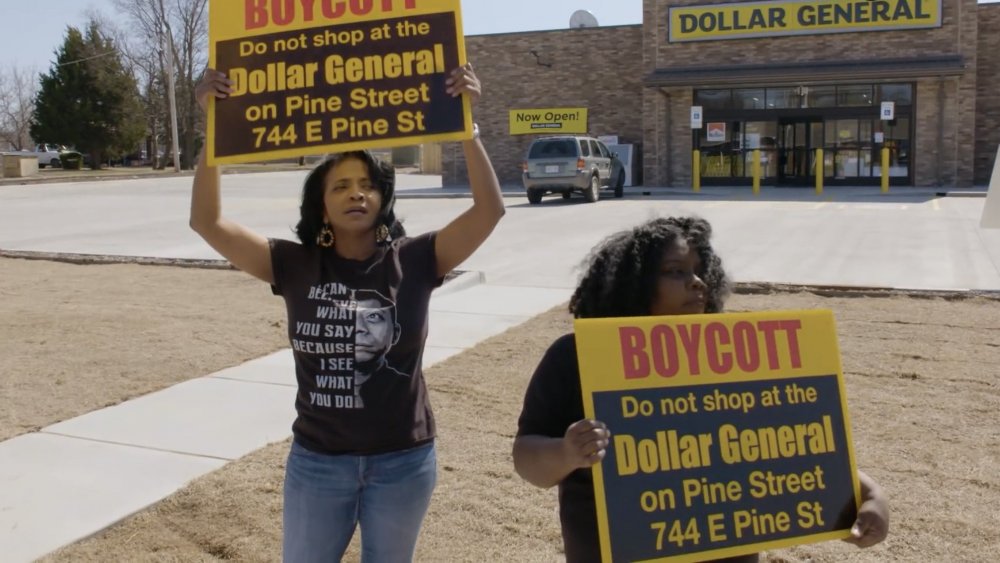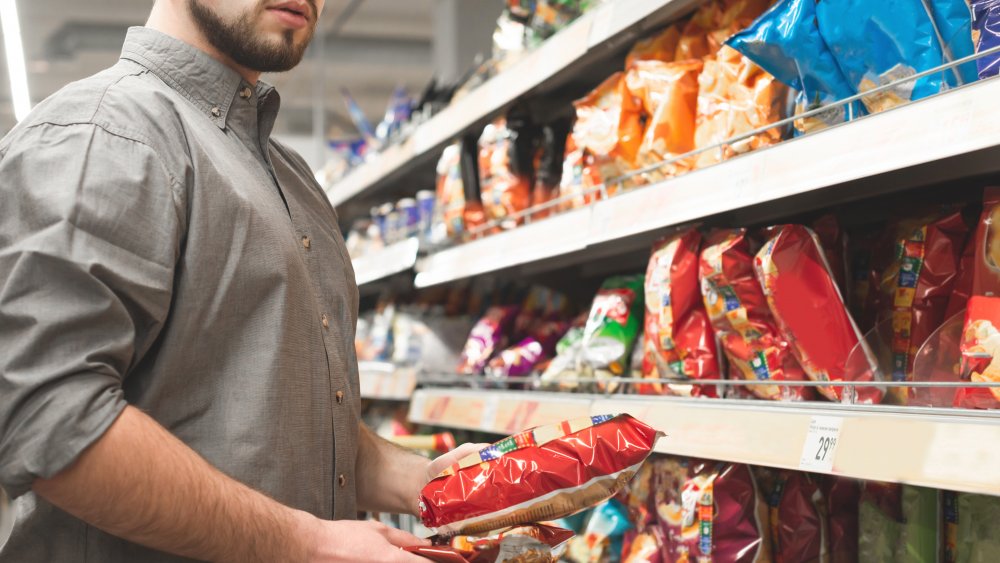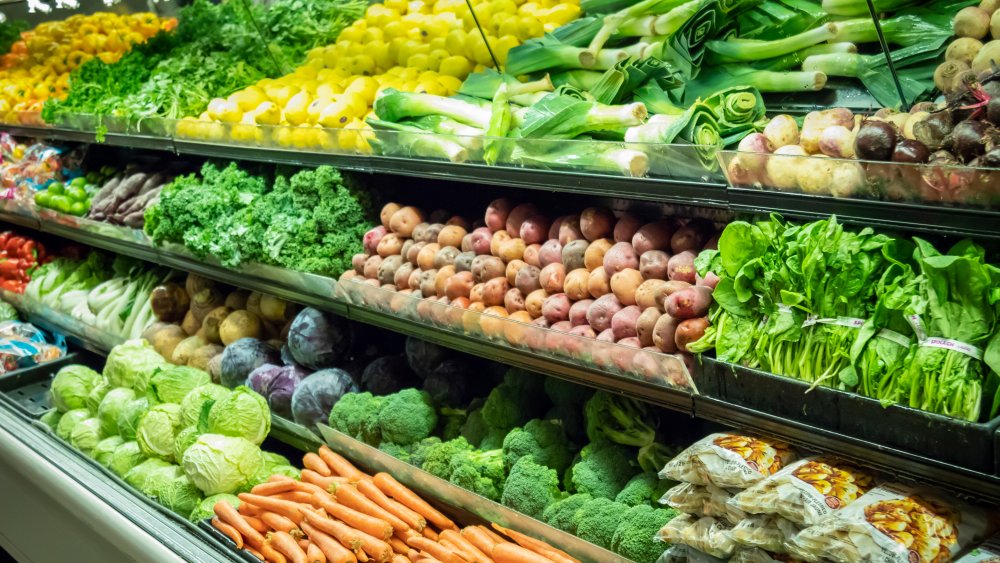The Real Reason Dollar Stores Can Be Harmful To Communities
If you believe the people who run the hugely successful dollar stores in America, they offer a lifeline to people who are stuck in poverty. Cal Turner Jr., grandson of the founder of Dollar General, told Fox Business, "The Dollar General customer is in a permanent recession, and we want to help them." (via The Washington Post). Never mind that dollar stores may themselves contribute to that permanent recession while making their customers unhealthier at the same time (via Institute for Local Self-Reliance).
When dollar stores move in, local grocery stores close down. In Haven, Kansas, population 1,200, the town's only grocery store closed three years after a Dollar General opened (via The Guardian). The store's owner figured he lost $1,000 a day after the dollar store came to town. Big chain stores have more buying power and can negotiate better prices for things like cans of soup. Dollar stores don't offer much fresh food, if any, but traditional grocers don't make much of a profit from fruits and vegetables. Their moneymakers are paper products and dry goods, where they face direct competition from dollar stores (via Civil Eats).
Dollar stores have fewer healthy food options
Dollar stores harm the local economy because they employ fewer workers than traditional grocery stores, and less of their revenues circulate in the community, according to Civil Eats. The owner of an independent grocery store tends to spend more of their money in town than a corporate chain store does.
When grocery stores close, dollar stores become the only place in the neighborhood where residents can buy food. Dollar General places more emphasis on groceries than its main rival, Dollar Tree, but only about 5 percent of Dollar General stores will offer produce by the end of 2020 (via Produce Blue Book). "Dollar stores are really designed to incentivize the purchase of high-calorie foods," health-sciences researcher Marianna Wetherill told The New York Times). This can make a bad health situation in a neighborhood even worse. The life expectancy in a predominantly black neighborhood on the north side of Tulsa, Oklahoma, is 11 years less than in South Tulsa, The Washington Post reported. North Tulsa has nine dollar stores and zero grocery stores, making it a so-called "food desert."
Profit shouldn't be the only motive when siting grocery stores
You might conclude that the market economy is just doing its thing. Dollar stores are opening in poor neighborhoods because people who don't have a lot of money are happy to have the option. Vanessa Hall-Harper, the city council member representing North Tulsa, doesn't agree. "When you let the market dictate, that's how you end up with poor, disenfranchised communities," Hall-Harper told The New York Times. "Because if the market is dictating, then there's no soul in that process. It's whatever makes money." Hall-Harper overcame the business-friendly attitude in Tulsa to pass a law requiring new dollar stores be built at least a mile away from any existing ones (via Tulsa World).
In neighborhoods such as Hall-Harper's, the market economy needs some help if it is going to create a high-quality grocery store. In June 2020, Eco Alliance broke ground on Oasis Fresh Market, a new, full-service grocer (with plenty of fresh produce) in North Tulsa. The project couldn't have happened without the support of a federal grant and contributions from several nonprofit foundations (via The Black Wall Street Times). "Eco Alliance is honored to play a role in eliminating food deserts while also providing jobs to those right here in the community," said AJ Johnson of Eco Alliance. "Access to high-quality groceries combined with great customer service will positively impact the lives of so many."


